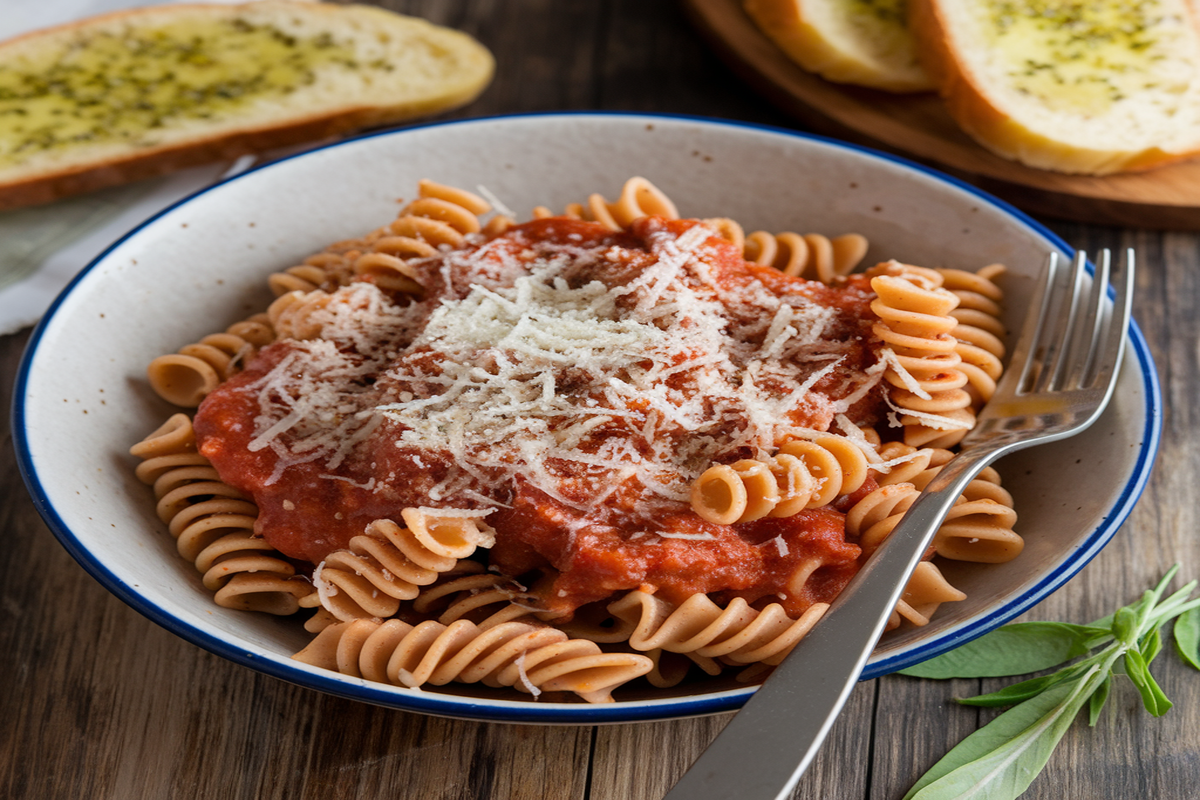Protein pasta has become increasingly popular for those seeking healthier meal alternatives. With higher levels of protein and fiber than traditional pasta, many wonder: Is protein pasta a carb? While protein pasta contains carbohydrates, its nutrient profile significantly differs from standard pasta. In this article, we’ll dive into the specifics of protein pasta, its carbohydrate content, and whether it fits into various diets.
What is Protein Pasta?
Protein pasta is made using ingredients like chickpeas, lentils, and whey protein. These pastas are designed to offer a higher protein content compared to regular pasta. While traditional wheat-based pasta contains around 6-8 grams of protein per serving, protein-enriched varieties can pack 10-20 grams of protein or more.
The rise in popularity of protein pasta comes from its unique balance of macronutrients. For a full discussion on the benefits, check out our comprehensive guide on Protein Pasta: Health Benefits, Types, and Recipes.
Is Protein Pasta a Carb?
Carbohydrate Content of Protein Pasta
Although protein pasta contains carbohydrates, it typically has fewer net carbs than traditional pasta due to its high fiber content. For example, chickpea or lentil pasta has approximately 30-35 grams of total carbs per serving but delivers a significant amount of fiber that lowers the net carbs. In comparison, traditional pasta may contain 40-45 grams of carbohydrates per serving with less fiber.
The protein content in these pastas also slows digestion, making them a better option for those managing blood sugar levels or following low-carb diets. For a deeper dive into the specifics, our article on Is Protein Pasta Good for Diet? provides further insight into how protein pasta impacts weight management and diet plans.
How Protein Impacts Carb Absorption
Protein plays a significant role in how carbohydrates are absorbed. The additional protein in protein pasta can slow the absorption of carbohydrates, leading to more stable blood sugar levels. This means that although protein pasta contains carbs, it may not cause the same insulin spikes as regular pasta, making it a better choice for individuals looking to manage their energy levels.
Types of Protein Pasta and Their Carb Content
Chickpea Pasta
One of the most popular varieties of protein pasta is chickpea pasta. It typically contains 30-35 grams of carbs per serving, along with around 12-14 grams of protein and 8-10 grams of fiber. The higher fiber content helps lower net carbs, making it an excellent option for those looking to manage carb intake while still enjoying pasta dishes.
Lentil Pasta
Lentil pasta is another favorite among protein pasta fans. With around 30-40 grams of carbs and 12-15 grams of protein, lentil pasta offers a good balance of carbohydrates and protein. Its fiber content (6-8 grams per serving) helps regulate digestion and supports gut health. Pairing lentil pasta with a nutritious side dish like Pumpkin Banana Loaf can create a balanced and satisfying meal.
Black Bean Pasta
For those on low-carb diets, black bean pasta is a great option. With only about 15-20 grams of carbs per serving and a high protein content (20-25 grams), this pasta is ideal for anyone following keto or low-carb meal plans. The fiber and protein combination in black bean pasta makes it a highly satiating choice.
Health Benefits Beyond Carbs
Satiety and Weight Management
One of the key benefits of protein pasta is its ability to help with satiety. The combination of protein and fiber ensures that you stay fuller for longer, reducing the likelihood of overeating or snacking between meals. This can be especially beneficial for those focused on weight management or adhering to a caloric deficit.
Muscle Building and Recovery
For those who are physically active or focusing on muscle gain, protein pasta provides a convenient way to increase protein intake. It supports muscle repair and recovery, making it a great option for post-workout meals.
Blood Sugar Control
Since protein pasta has a lower glycemic index than traditional pasta, it may help in managing blood sugar levels. The slower release of glucose into the bloodstream can prevent sudden spikes and crashes, which is particularly beneficial for those with diabetes or those looking to maintain consistent energy levels throughout the day.
Potential Downsides of Protein Pasta
Higher Caloric Density
While protein pasta offers higher levels of protein and fiber, it can also be more calorie-dense than traditional pasta. Being mindful of portion sizes is key, particularly for individuals following a calorie-restricted diet.
Texture and Flavor Differences
Some may find that protein pasta has a firmer texture or a grainier taste compared to regular pasta. These differences are particularly noticeable in chickpea and lentil varieties. However, pairing it with flavorful sauces can help improve the overall eating experience. For a delicious post-meal snack, consider making Earl Grey Cookies.
FAQs
1. Is Protein Pasta Low in Carbs?
Protein pasta contains fewer net carbs than traditional pasta due to its higher fiber content, making it a good option for those monitoring their carbohydrate intake.
2. Can You Eat Protein Pasta on a Low-Carb or Keto Diet?
Some varieties, like black bean pasta or edamame pasta, are low enough in carbs to be included in moderation in low-carb or keto diets.
3. Does Protein Pasta Have More Protein Than Regular Pasta?
Yes, protein pasta typically contains significantly more protein than traditional pasta, with some varieties offering up to 20-25 grams per serving.
Conclusion
In conclusion, while protein pasta does contain carbohydrates, its high protein and fiber content make it a better option than traditional pasta for those looking to manage carb intake or stabilize blood sugar levels. Whether you’re following a low-carb diet or just looking to increase your protein intake, protein pasta is a nutritious and satisfying alternative to regular pasta.
